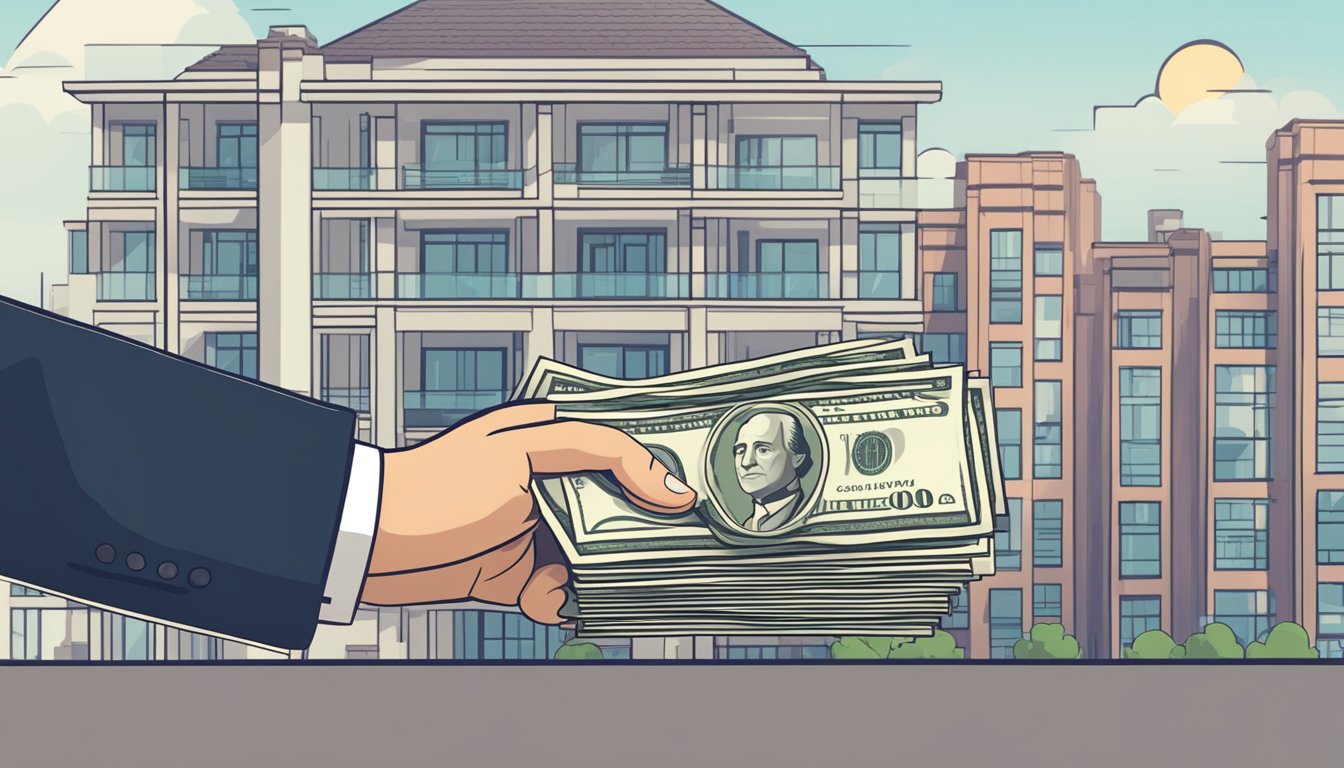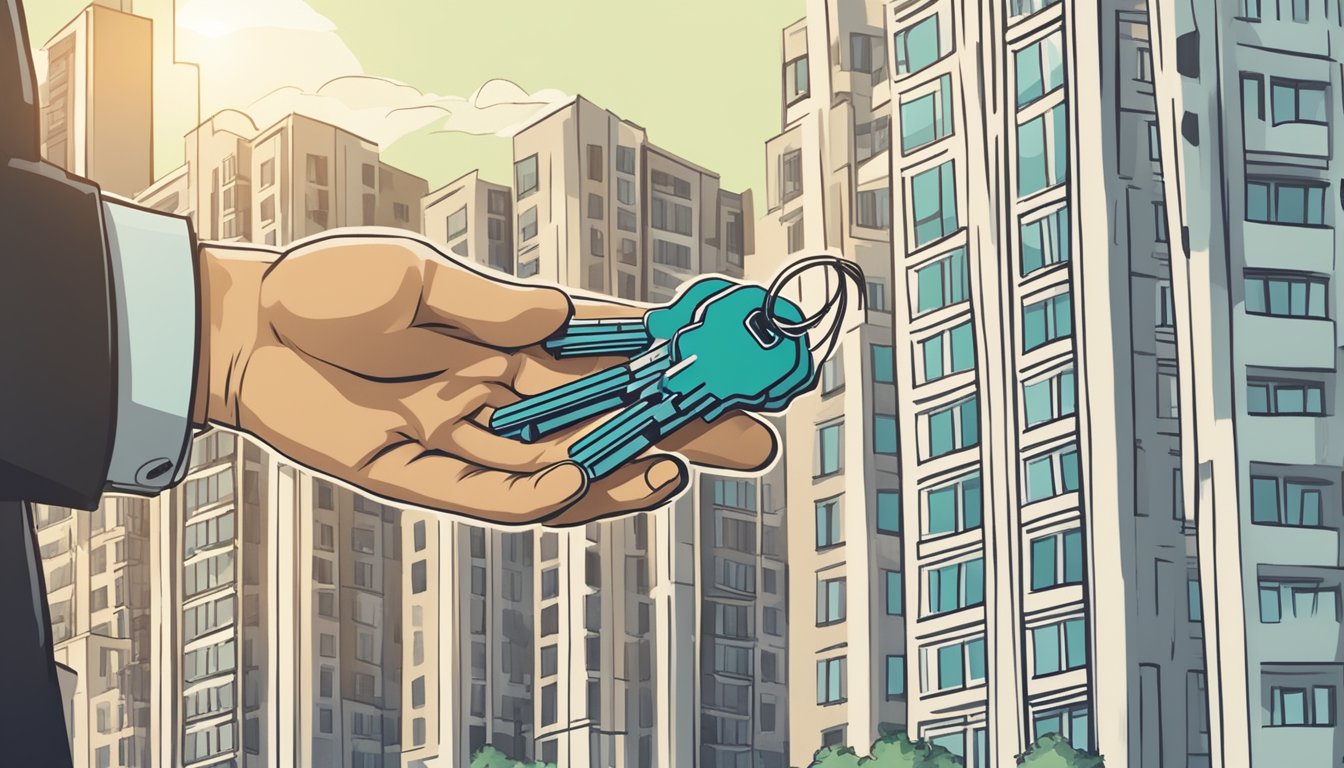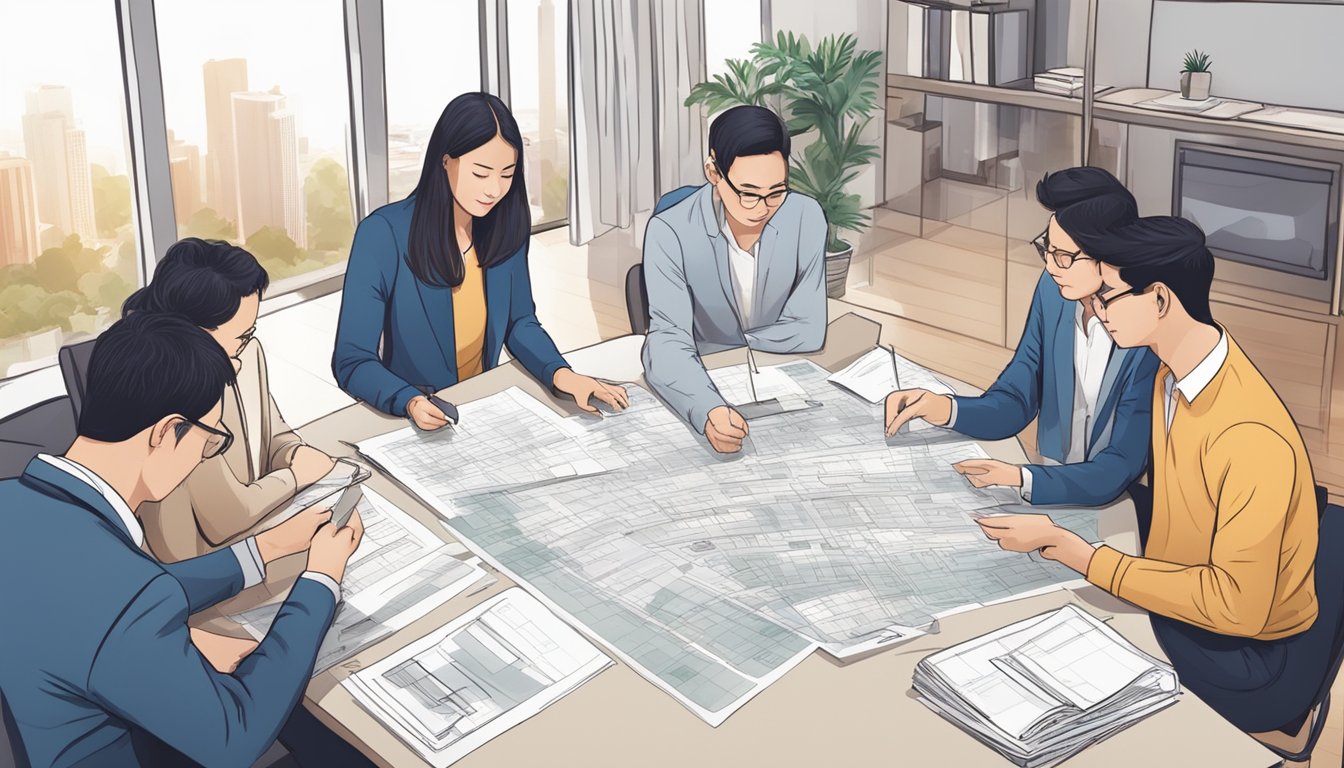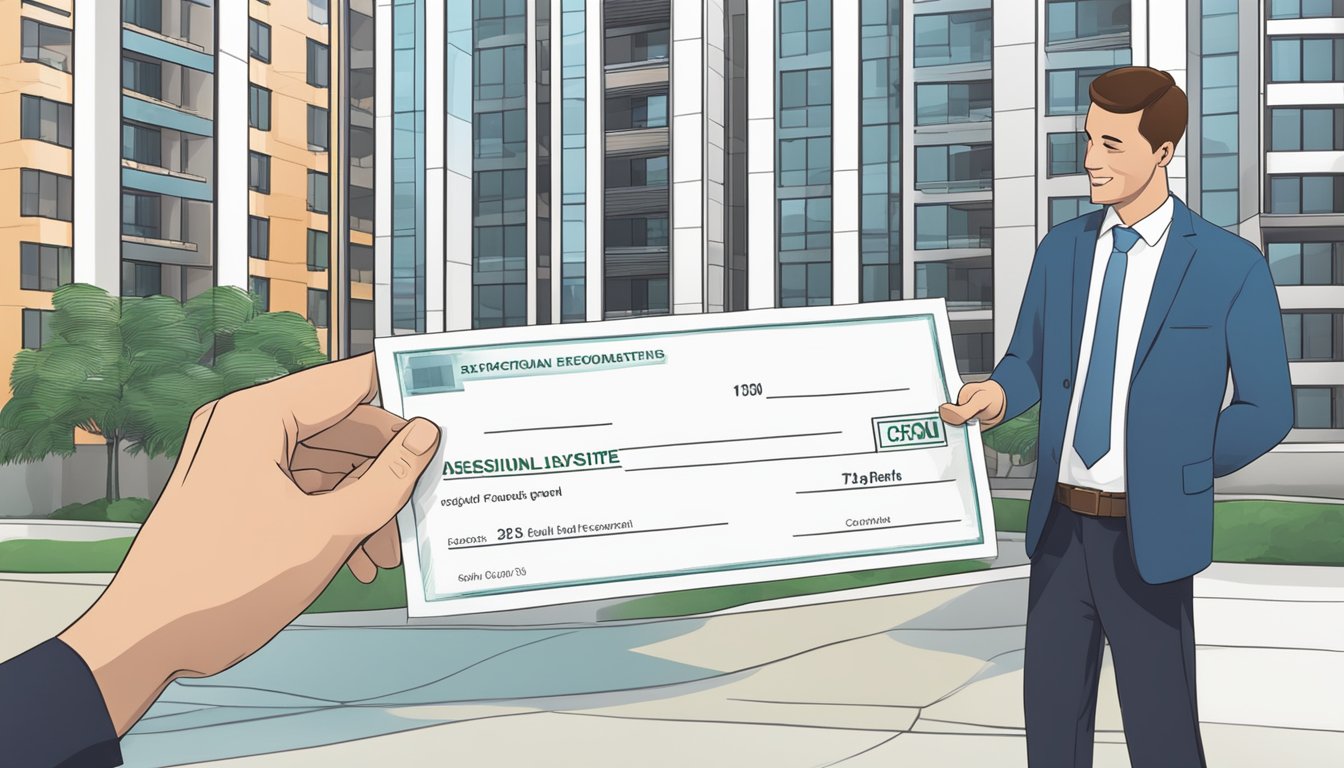If you’re looking to buy a condo in Singapore, one of the first things you’ll need to consider is the downpayment. The amount you’ll need to pay upfront can be a substantial sum, so it’s important to understand how it works and what you can expect to pay.

In Singapore, the minimum downpayment for a condo is 5% of the purchase price, while the maximum is 25%. For first-time buyers who are Singaporean citizens, the downpayment is typically 25% of the purchase price. However, if you’re a foreigner or a permanent resident, you may be required to pay a higher downpayment.
It’s important to note that the downpayment is just one of the costs you’ll need to consider when buying a condo in Singapore. There are additional fees and charges, such as stamp duty, legal fees, and agent fees, that you’ll need to factor into your budget. Understanding these costs and planning accordingly can help you avoid any surprises and ensure a smooth and successful condo purchase.
Key Takeaways
- The downpayment for a condo in Singapore is typically 25% of the purchase price for first-time buyers who are Singaporean citizens.
- Foreigners and permanent residents may be required to pay a higher downpayment.
- In addition to the downpayment, there are additional fees and charges to consider when buying a condo in Singapore.
Understanding Condo Downpayment in Singapore

If you’re planning to buy a condo in Singapore, one of the essential financial considerations you need to make is the downpayment. The condo downpayment is the initial amount that you need to pay towards the purchase of a condominium. Here’s what you need to know about condo downpayment in Singapore.
Loan-To-Value (LTV) Limit
The Loan-To-Value (LTV) limit is a ratio that determines how much you can borrow from a bank or financial institution to purchase a condo. The LTV limit for a condo in Singapore is 75%, which means that you can borrow up to 75% of the purchase price of the condo. The remaining 25% of the purchase price must be paid as a downpayment.
Minimum Cash Downpayment
The minimum cash downpayment is the minimum amount of cash that you need to pay towards the purchase of a condo. The minimum cash downpayment for a condo in Singapore is 5% of the purchase price. For example, if you’re buying a condo for $1 million, the minimum cash downpayment you need to pay is $50,000.
CPF Ordinary Account Usage
The CPF Ordinary Account (OA) is a savings account that Singaporeans and Permanent Residents (PRs) have. You can use your CPF OA savings to pay for your condo downpayment. The amount of CPF OA savings that you can use depends on your age and the remaining lease of the condo.
For example, if you’re below 55 years old and the remaining lease of the condo is more than 30 years, you can use up to 25% of your CPF OA savings to pay for your condo downpayment. If you’re above 55 years old, you can use up to 10% of your CPF OA savings to pay for your condo downpayment.
In summary, understanding condo downpayment in Singapore is essential if you’re planning to buy a condo. The LTV limit is 75%, and the minimum cash downpayment is 5% of the purchase price. You can also use your CPF OA savings to pay for your condo downpayment, but the amount you can use depends on your age and the remaining lease of the condo.
Additional Costs Beyond Downpayment

When buying a condo in Singapore, the downpayment is just one of the many costs you’ll need to consider. Here are some other upfront costs you should be aware of:
Buyer’s Stamp Duty (BSD)
Buyer’s Stamp Duty (BSD) is a tax that you need to pay when you purchase a property in Singapore. The BSD rate ranges from 1% to 4% of the purchase price, depending on the value of the property. For example, if you buy a condo for $1 million, you’ll need to pay $24,600 in BSD.
Additional Buyer’s Stamp Duty (ABSD)
Additional Buyer’s Stamp Duty (ABSD) is a tax that you need to pay on top of the BSD if you’re a foreigner or a Singaporean purchasing a second property. The ABSD rate ranges from 5% to 20% of the purchase price, depending on your residency status and the number of properties you own. For example, if you’re a foreigner buying your second property in Singapore, you’ll need to pay a total of 25% in stamp duty (BSD + ABSD).
Legal Fees and Other Upfront Costs
In addition to stamp duty, you’ll also need to pay legal fees and other upfront costs when buying a condo in Singapore. Legal fees can range from $2,000 to $4,000, depending on the complexity of the transaction. Other upfront costs may include property valuation fees, which can cost anywhere from $300 to $500, and mortgage stamp duty, which is 0.2% of the loan amount.
Maintenance Fees and Property Tax
After you’ve purchased your condo, you’ll also need to consider ongoing costs such as maintenance fees and property tax. Maintenance fees are paid to the condo management to cover the upkeep of the common areas and facilities. The amount you’ll need to pay depends on the size of your unit and the facilities available. Property tax is a tax that you need to pay to the government on an annual basis. The amount you’ll need to pay depends on the annual value of your property.
Overall, when buying a condo in Singapore, it’s important to consider all the costs involved, not just the downpayment. By doing so, you can ensure that you have enough funds to cover all the upfront and ongoing costs associated with owning a condo.
Eligibility and Regulations for Buyers

If you are considering buying a condo in Singapore, it is important to understand the eligibility and regulations for buyers. In this section, we will cover the requirements for Singapore citizens and PRs, as well as foreign buyers.
Singapore Citizens and PRs
Singapore citizens and PRs are eligible to purchase a condo in Singapore. They can use their CPF savings to pay for the downpayment, subject to withdrawal limits. The minimum downpayment for Singapore citizens is 5%, while for PRs, it is 20%. The remaining amount can be paid using their CPF OA.
Foreign Buyers and Eligibility
Foreign buyers are also eligible to purchase a condo in Singapore, subject to certain eligibility conditions. They are required to obtain approval from the Singapore Land Authority before they can purchase a condo. The minimum downpayment for foreign buyers is 30% of the purchase price, and they are not allowed to use their CPF savings to pay for the downpayment.
Foreign buyers are also subject to additional buyer’s stamp duty (ABSD) of 20% on the purchase price, on top of the existing buyer’s stamp duty (BSD) of up to 4%. However, ABSD can be reduced to 15% for certain categories of foreign buyers, such as those who are citizens of countries that have free trade agreements with Singapore.
It is important to note that foreign buyers are not allowed to purchase all types of condos in Singapore. They are only allowed to purchase condos that are classified as “non-landed residential property”, such as apartments and condominiums.
Financing Your Condo Purchase

When it comes to financing your condo purchase, there are several things to consider. You’ll need to choose the right home loan, understand interest rates and loan tenure, and be aware of the impact of Total Debt Servicing Ratio (TDSR).
Choosing the Right Home Loan
Choosing the right home loan is crucial to ensuring that you can afford your condo purchase. You’ll need to consider the loan amount, bank loan, income ceiling, outstanding loans, and mortgage loan.
It’s important to note that the loan amount you can receive will depend on your income and financial capability. If you have outstanding loans, this may impact the amount of loan you can receive. You’ll also want to consider the bank interest rates, which can be either fixed or floating.
Interest Rates and Loan Tenure
Interest rates and loan tenure are important factors to consider when choosing a home loan. The interest rate you choose will affect your monthly repayments and the overall cost of your loan.
If you choose a fixed rate, your interest rate will remain the same throughout the loan tenure. If you choose a floating interest rate, your interest rate will fluctuate with market conditions.
The loan tenure is the length of time you’ll take to repay your loan. The longer the loan tenure, the lower your monthly repayments will be. However, this will also result in a higher overall cost of the loan.
Impact of Total Debt Servicing Ratio (TDSR)
The Total Debt Servicing Ratio (TDSR) is a measure of your ability to service all your debts. It takes into account your income, outstanding debts, and other financial commitments.
The TDSR limit is set at 60% of your gross monthly income. This means that your total monthly debt repayments, including your home loan, cannot exceed 60% of your gross monthly income.
It’s important to be aware of the impact of TDSR when choosing a home loan. If you exceed the TDSR limit, you may not be able to obtain a home loan or may have to choose a smaller loan amount.
In summary, financing your condo purchase requires careful consideration of several factors. By choosing the right home loan, understanding interest rates and loan tenure, and being aware of the impact of TDSR, you can ensure that you make a sound financial decision.
Additional Considerations for Condo Buyers

Buying a condo in Singapore is a significant investment, and it’s important to consider all the factors before making a decision. In this section, we’ll cover some additional considerations that condo buyers should keep in mind.
Property Market Trends Amidst COVID-19
The COVID-19 pandemic has had a significant impact on the property market in Singapore. While the market has remained relatively stable, there have been some changes in property prices and demand. It’s important to stay up-to-date with the latest market trends and forecasts to make an informed decision.
Government Grants and Financial Planning
The Singapore government offers various grants and schemes to help first-time homebuyers purchase a property. These grants can help offset some of the costs associated with buying a condo, such as the downpayment and stamp duty. It’s essential to research these grants and schemes and determine if you are eligible.
When it comes to financial planning, it’s important to consider your salary, renovation costs, and mortgage payments. You should also factor in the option to purchase (OTP) and real estate agent fees. These costs can add up quickly, so it’s crucial to have a clear understanding of your budget and financial situation.
Overall, buying a condo in Singapore requires careful consideration and planning. By keeping these additional considerations in mind, you can make an informed decision and find a condo that meets your needs and budget.
Frequently Asked Questions

How much do I need to earn to afford a condominium in Singapore?
The amount you need to earn to afford a condominium in Singapore depends on various factors such as the location, size, and age of the property. However, as a general rule of thumb, your monthly mortgage payments should not exceed 30% of your gross monthly income. So, if you’re looking to purchase a $1 million condominium, you should ideally earn around $10,000 per month.
What’s the minimum initial deposit required for a condominium purchase?
The minimum initial deposit required for a condominium purchase in Singapore varies depending on your citizenship status. Singapore citizens need to pay a minimum of 5% of the purchase price in cash, while permanent residents need to pay a minimum of 20%. Foreigners, on the other hand, need to pay a minimum of 30% of the purchase price in cash.
Can I utilise my CPF funds for the initial condominium down payment?
Yes, you can utilise your CPF funds for the initial condominium down payment. However, there are limits to how much you can use. For example, if you’re a first-time buyer, you can use up to the entire CPF Ordinary Account (OA) balance and up to half of your CPF Special Account (SA) balance for the down payment.
What’s the typical cash outlay for a condominium down payment?
The typical cash outlay for a condominium down payment in Singapore is around 25% to 30% of the purchase price. This includes the minimum cash deposit required as well as the Buyer’s Stamp Duty (BSD) and Additional Buyer’s Stamp Duty (ABSD), if applicable.
How does the down payment differ between new launches and resale condominiums?
The down payment for new launches and resale condominiums in Singapore is generally the same. However, developers may offer different payment schemes and discounts for new launches, which could affect the amount of cash you need to pay upfront.
Is there a handy calculator to estimate condominium down payments in Singapore?
Yes, there are several online calculators that can help you estimate your condominium down payment in Singapore. These calculators take into account factors such as the purchase price, loan amount, and CPF usage to give you an estimate of the cash you need to pay upfront.




